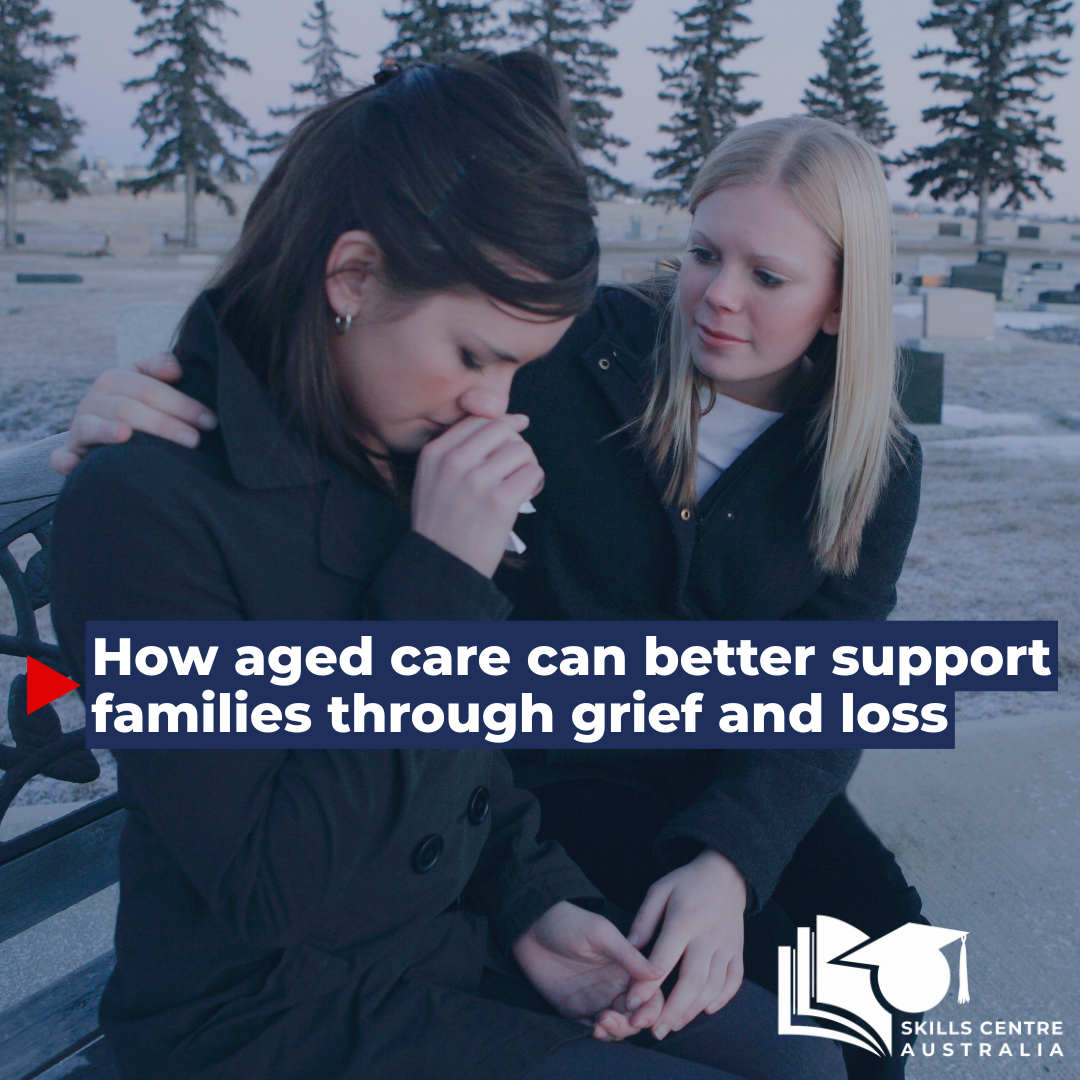A recent review, led by Flinders University, highlights an urgent need for a formal, coordinated framework to address the grief and loss experienced by families of residents in aged care facilities. The study underscores that grief often begins as soon as a loved one enters residential aged care and intensifies throughout their time in the system, profoundly affecting family caregivers.

The review analysed 35 research papers examining the emotional journey of families as they navigate the complexities of their relatives’ entry, stay, and eventual death in residential aged care. Findings revealed the quality of end-of-life care provided to residents significantly influences the grief experience of their families. Importantly, the review identified that supportive communication, family involvement in care decisions, and preparation for death are equally critical components in shaping how families cope with loss.
This research calls for a collaborative response from government bodies, aged care providers, and researchers to implement comprehensive grief, loss, and bereavement support across the aged care sector. Suggested measures include embedding grief support into service policies, enhancing staff training programs, and creating accessible resources for families to better navigate this challenging process.
The findings point to a complex and multifaceted emotional experience for families, one that requires a holistic response beyond clinical care. Family members often experience anticipatory grief beginning with admission to care, a period marked by adjustment and uncertainty that can escalate as their loved one’s health declines. The quality of communication between aged care staff and families emerged as a key factor, with clear, compassionate dialogue helping families prepare emotionally and practically for the progression toward end-of-life.

Involvement in care decisions was shown to promote a sense of agency and reduce feeling of helplessness among family caregivers, while poor communication and exclusion exacerbated distress. The review highlights the importance of equipping aged care staff with skills, not only in clinical care but also in psychosocial support, enabling them to recognise and respond to the emotional needs of families throughout the resident’s journey.
At Skills Centre Australia, we offer a dedicated Palliative Care course designed to ensure healthcare workers can deliver compassionate and effective care to those with serious, life-limiting illnesses. The training covers key topics, including communication, the five stages of palliative care, end-of-life expectations, common phenomena, care planning, medication use, and personal care techniques.
The review further emphasises the need for coordinated policies at both organisational and government levels, advocating for grief support to be a standard component of aged care services. Current approaches vary widely, with many families reporting a lack of structured bereavement support following the death of a resident.
Researchers behind the review call for investment in leadership and sector-wide initiatives that prioritise grief and loss as integral aspects of aged care. Such measures could include ongoing staff training in grief counselling, development of tailored resources for families, and integration of grief support within care planning and after-death services.

This call to action comes amid growing recognition of the emotional toll faced by families in aged care settings, and the broader need to humanise the experience of ageing, dying, and bereavement. By promoting a coordinated and compassionate approach, the aged care sector can better support families through one of life’s most difficult transitions, ultimately improving wellbeing for both residents and their loved ones.
Training and education are key to achieving this goal, and providers like Skills Centre Australia are helping lead the way. As a dedicated training facility for healthcare workers, we offer practical, targeted programs—such as our Palliative Care course—which focus on building the essential skills needed to deliver respectful, informed, and empathetic care. To enquire, or enrol, give us a call on (08) 8265 5696, or visit our website.
The review, titled The matter of grief, loss and bereavement in families for those living and dying in residential aged care settings: A systematic review, is published in Archives of Gerontology and Geriatrics. The work was supported by the South Australian Government’s Palliative Care 2020 Grants Program.


